Detail Overview of Music and Creation Exercise
The lesson “Music and Creation” is a powerful biographical account of Ludwig van Beethoven, a world-famous composer who overcame the tragic loss of his hearing. Born into a musical family, Beethoven mastered several instruments and rose to fame in his youth. However, his life took a painful turn when he began to lose his hearing at the age of 27. Despite deep emotional struggles and suicidal thoughts, Beethoven never stopped composing music, proving that inner strength and dedication can conquer even the harshest challenges.
Through comprehension and critical thinking exercises, students explore how Beethoven’s determination, not divine inspiration, helped him achieve greatness. They compare his story with other figures like Helen Keller and Milton, reflect on personal values, and imagine Beethoven’s inner voice through a monologue. These tasks highlight the power of resilience, hard work, and the human spirit.
The writing and grammar sections encourage students to apply their learning by writing a biography of a Nepali musician and practicing correct prepositions. Overall, the lesson inspires students to look beyond limitations and embrace creativity and discipline. Beethoven’s story becomes a timeless reminder that true art often emerges from personal struggle and perseverance.
Chapter 18: Music and Creation Exercise
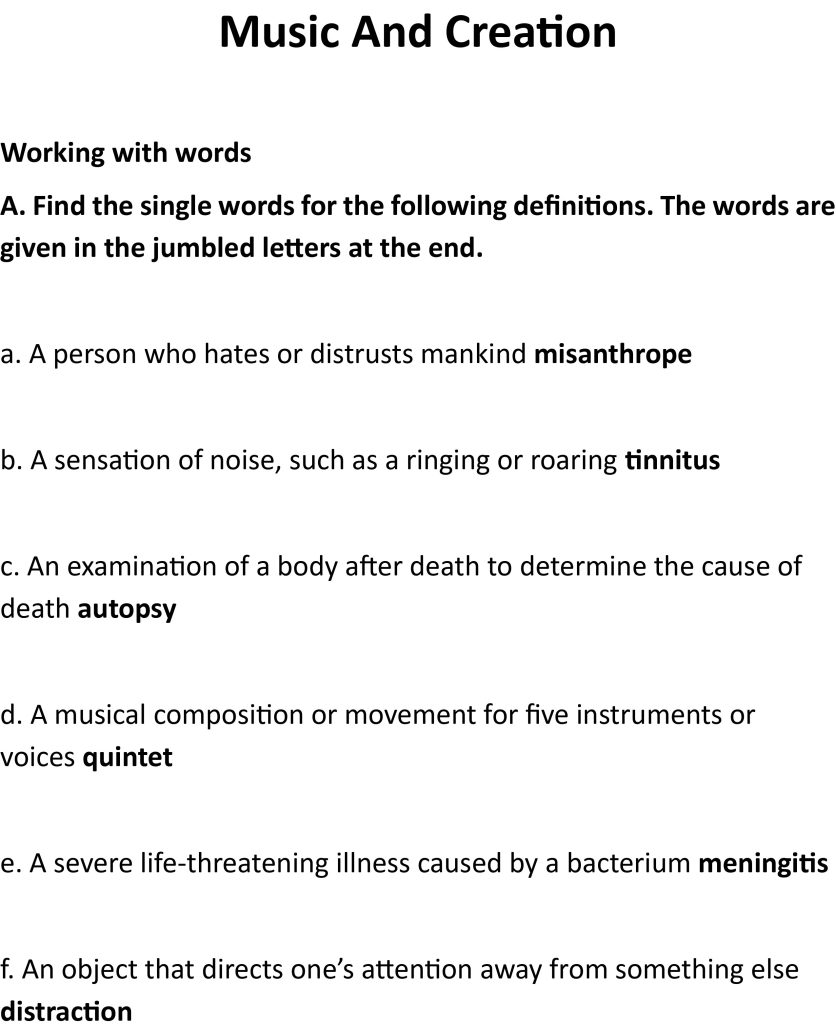
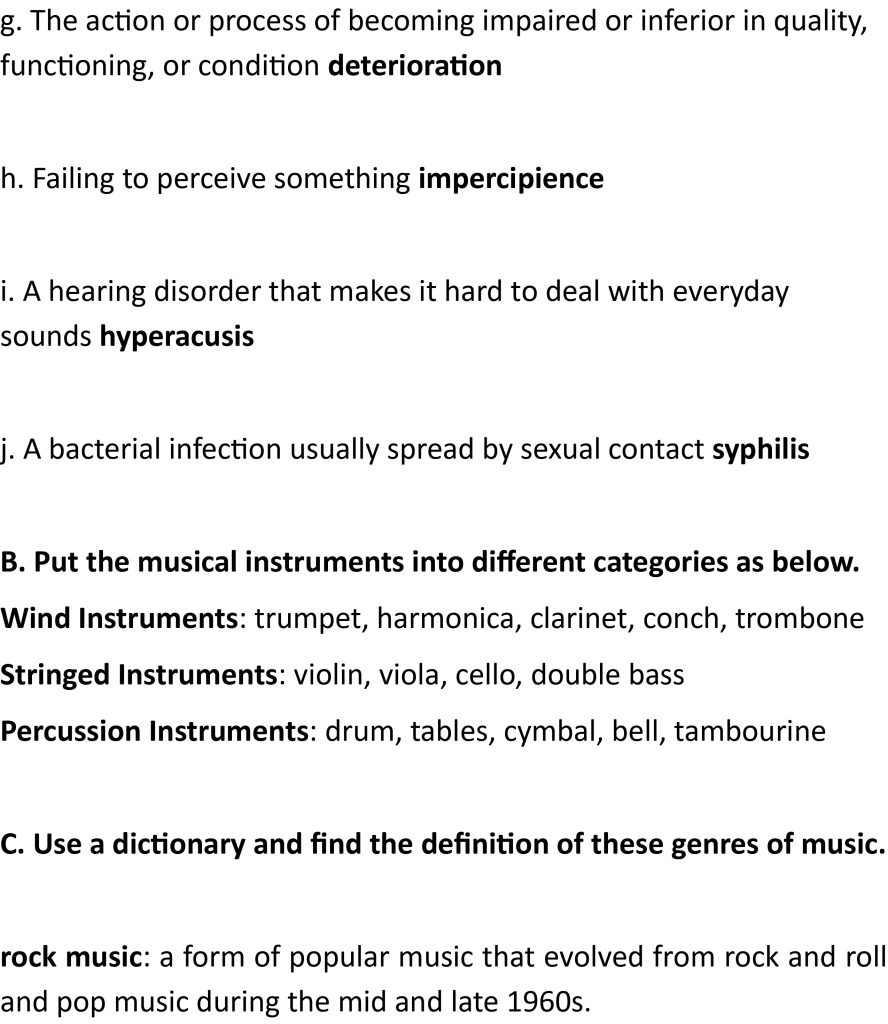
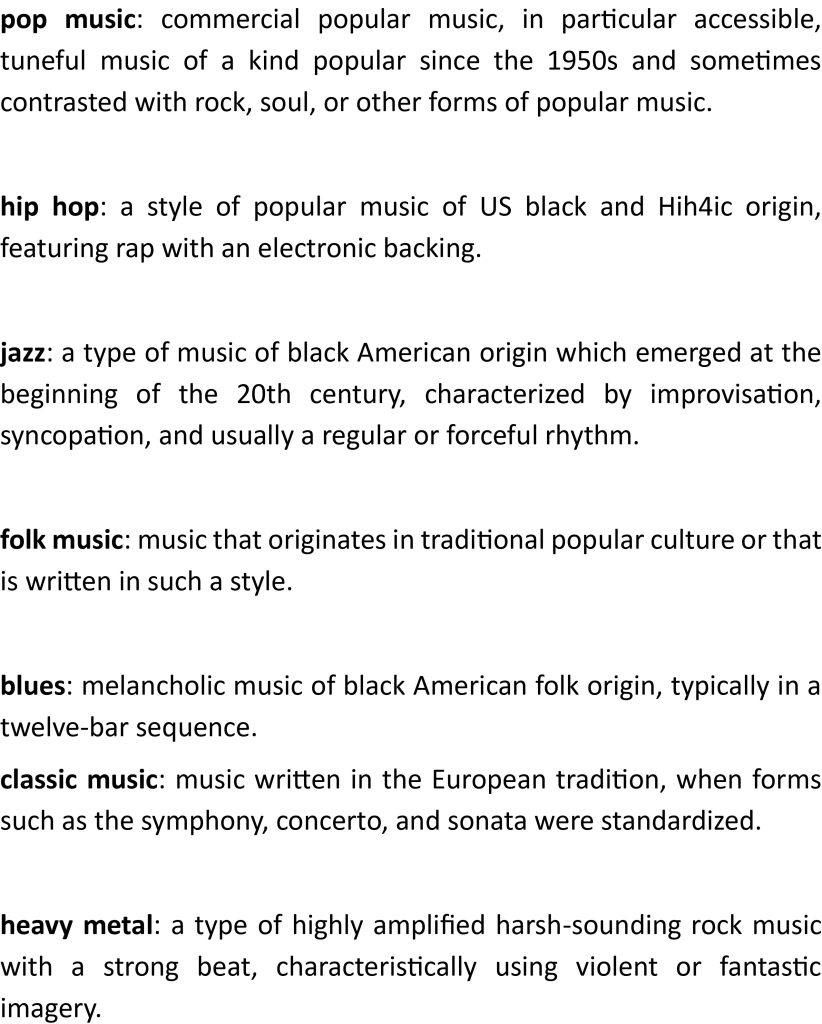
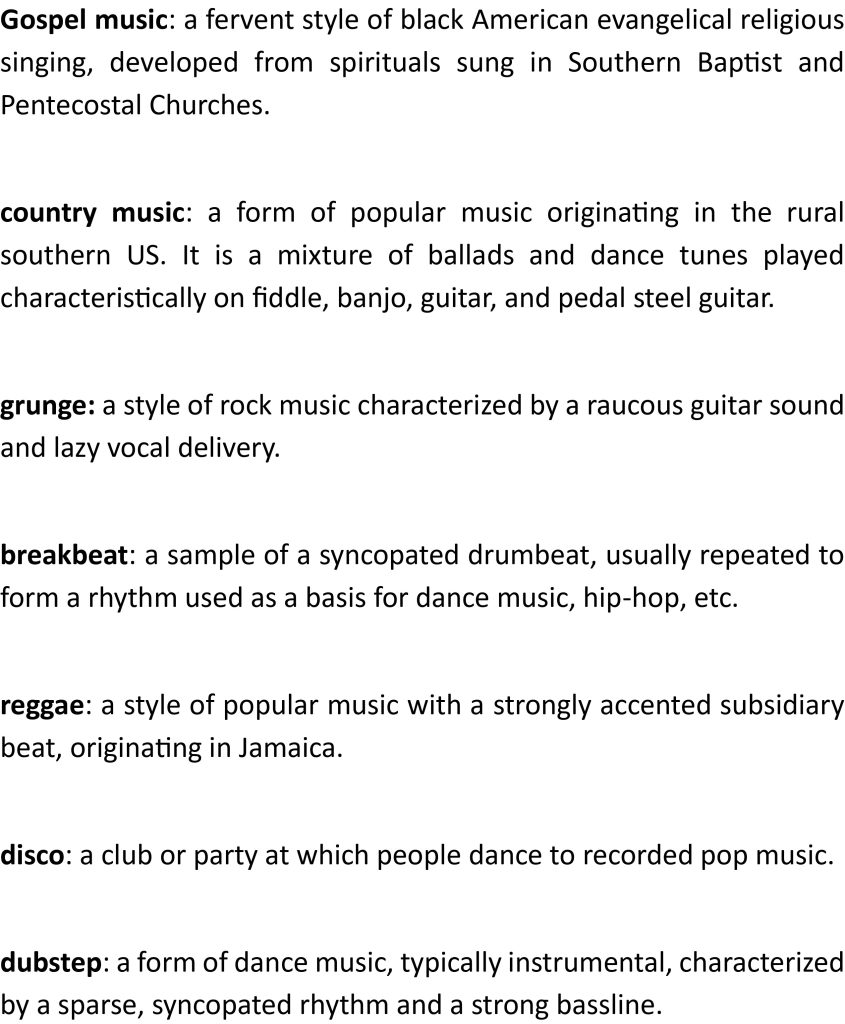
Continue reading the ‘Music and Creation Exercise’ in meroguru app

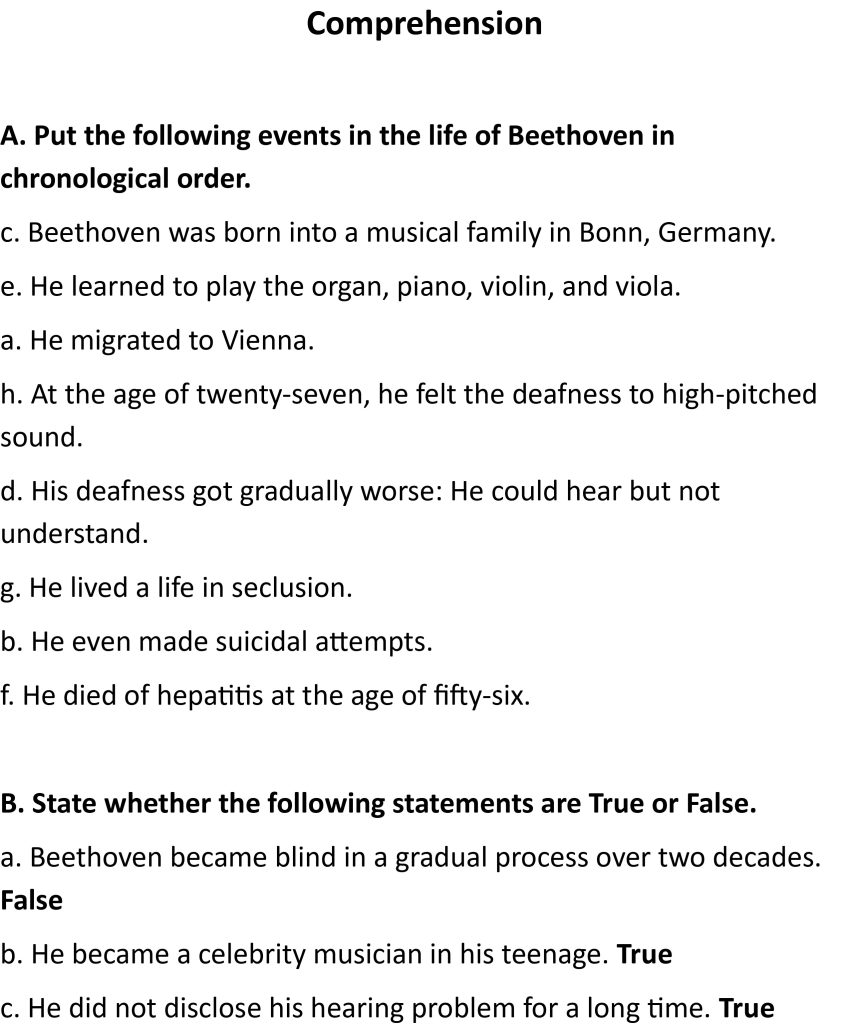
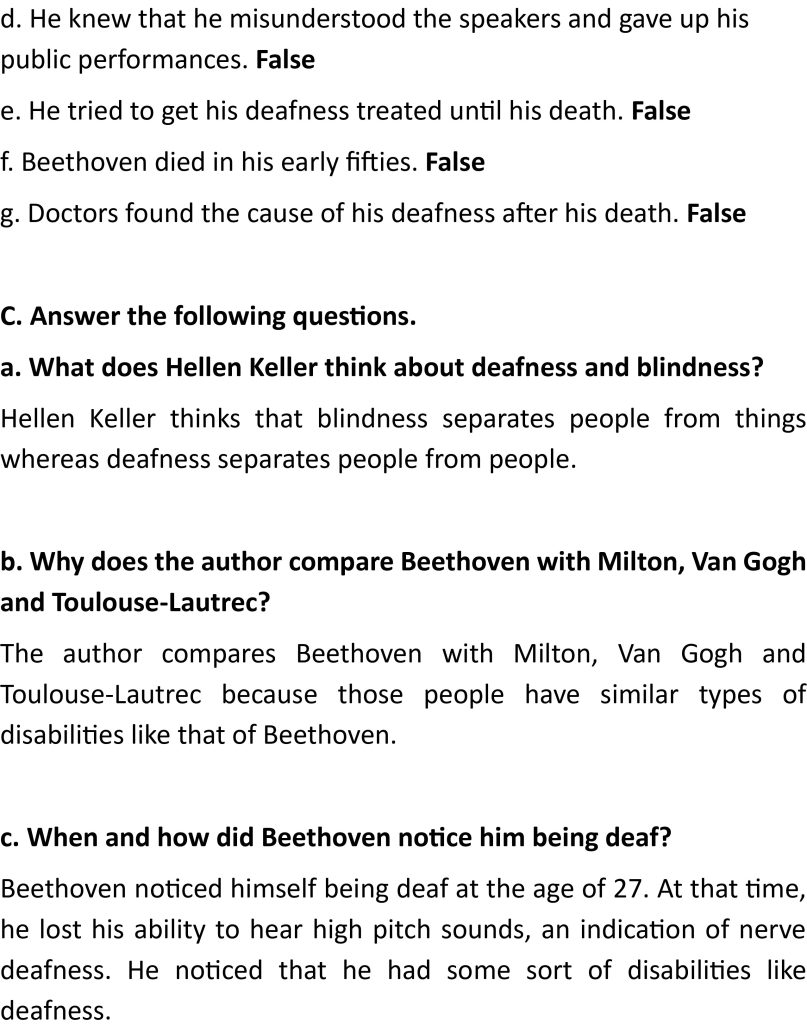
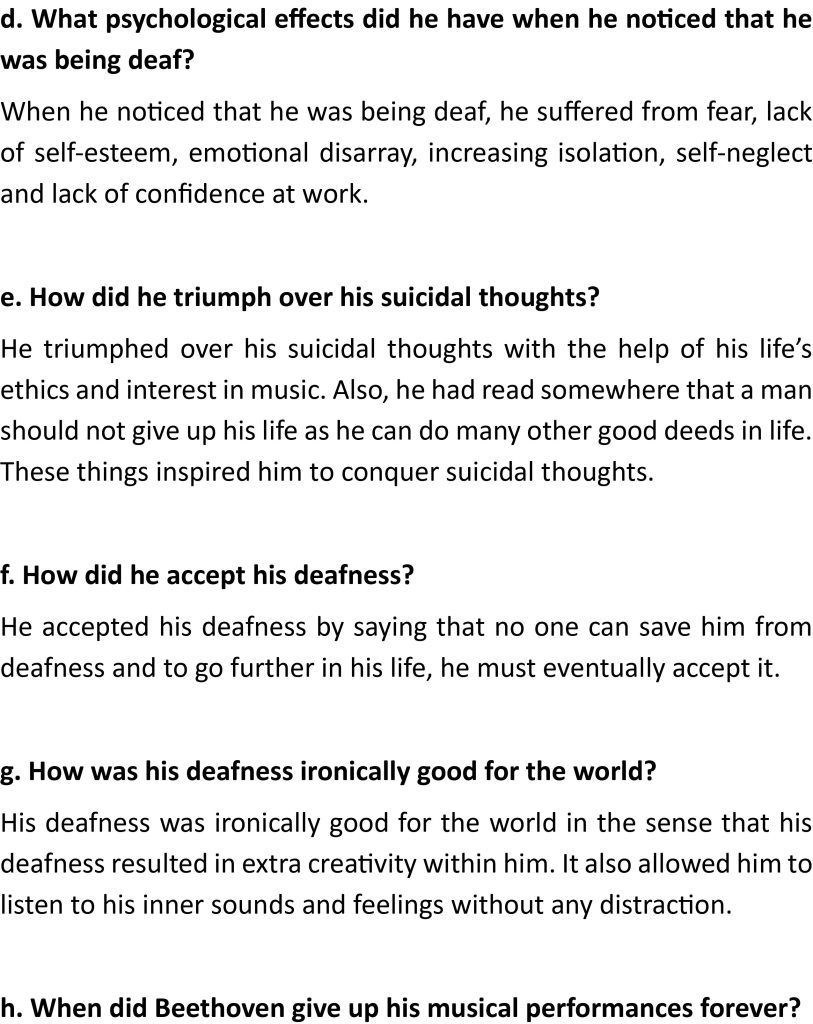
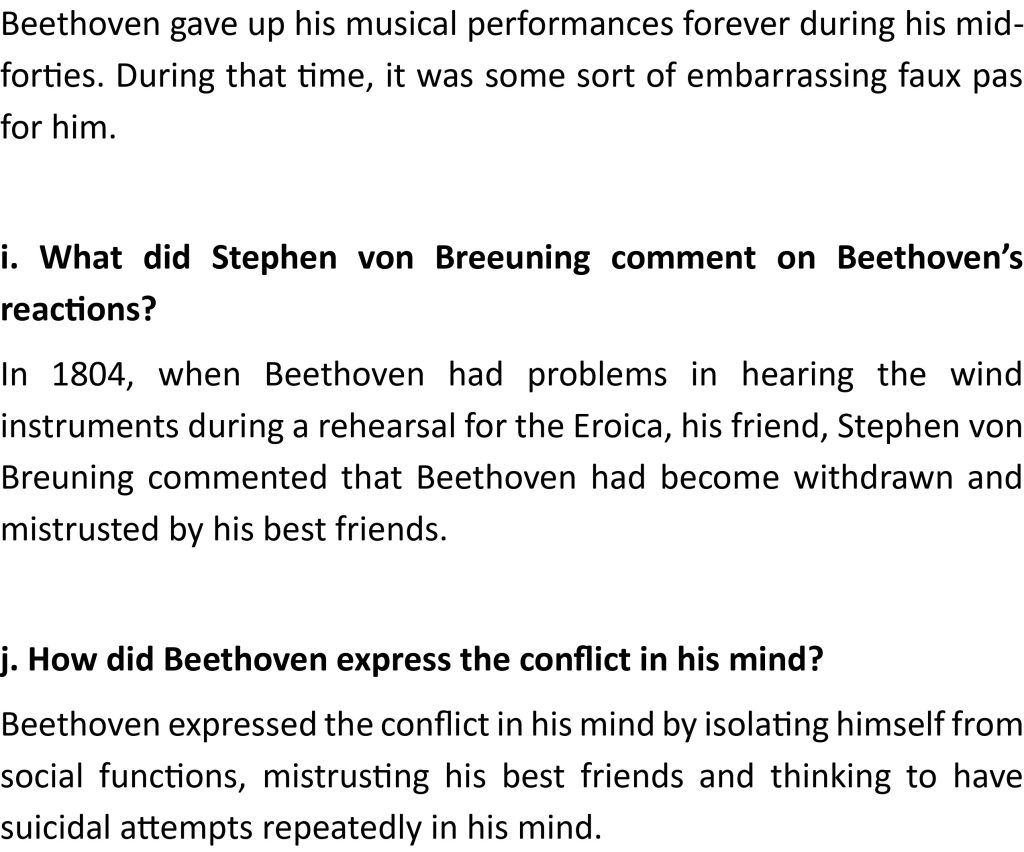
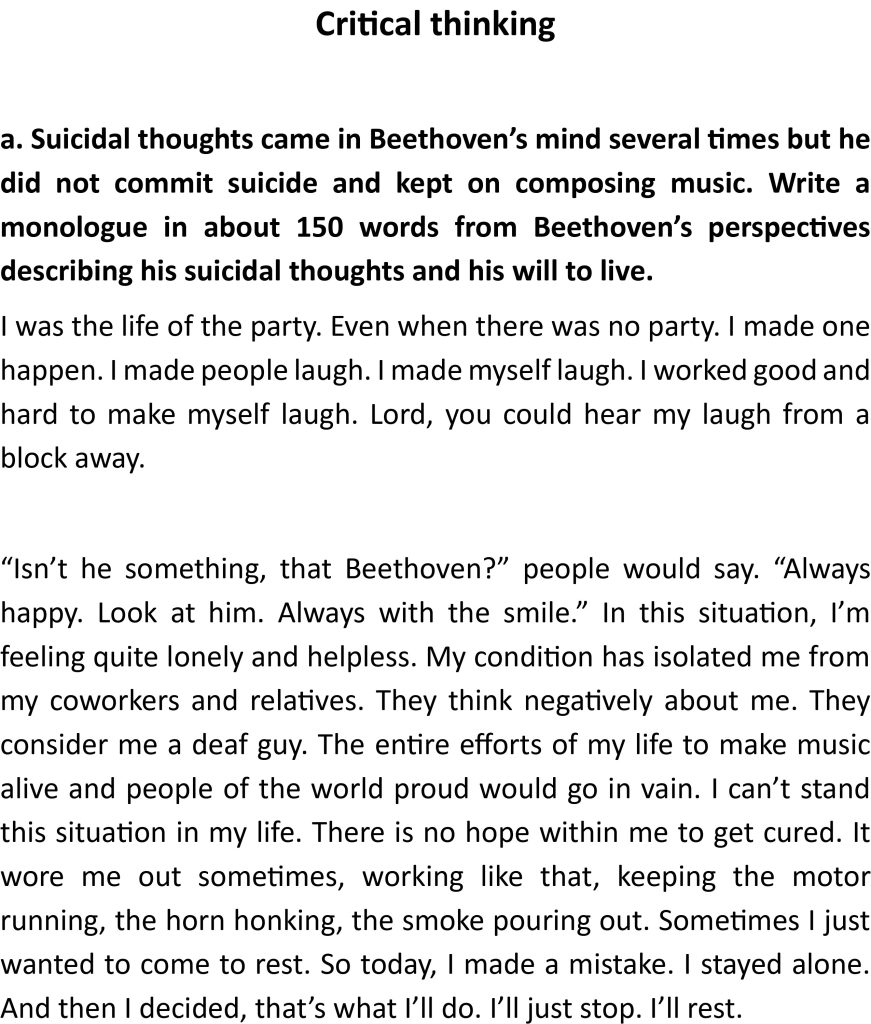
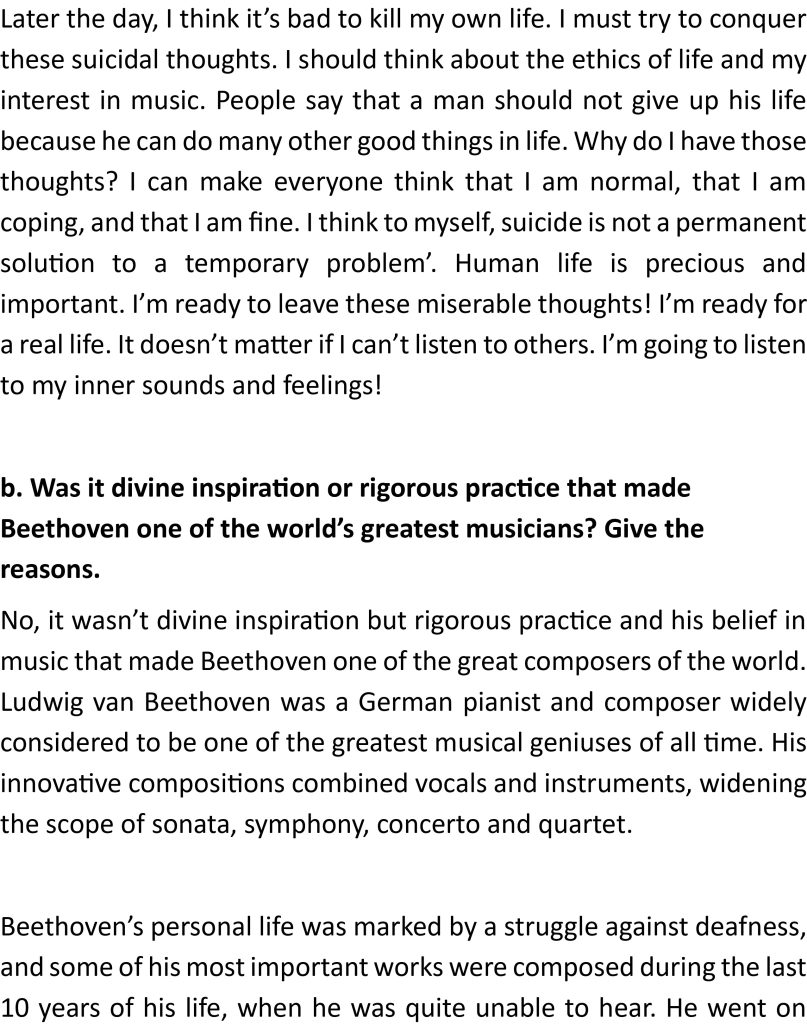
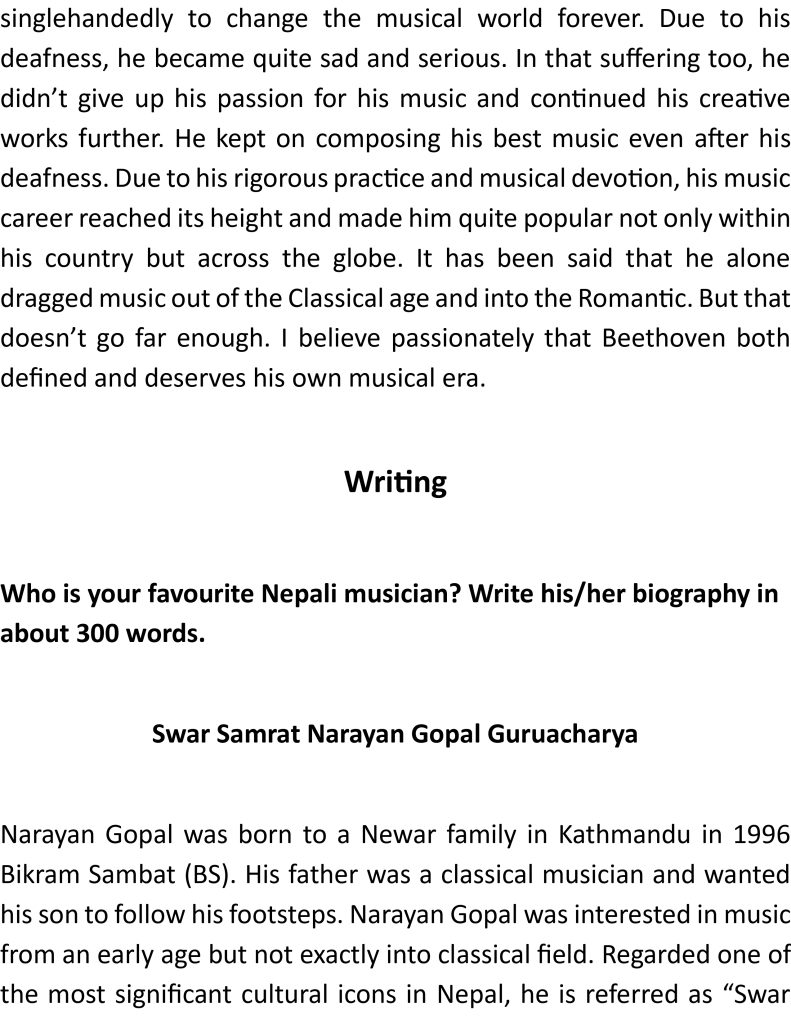
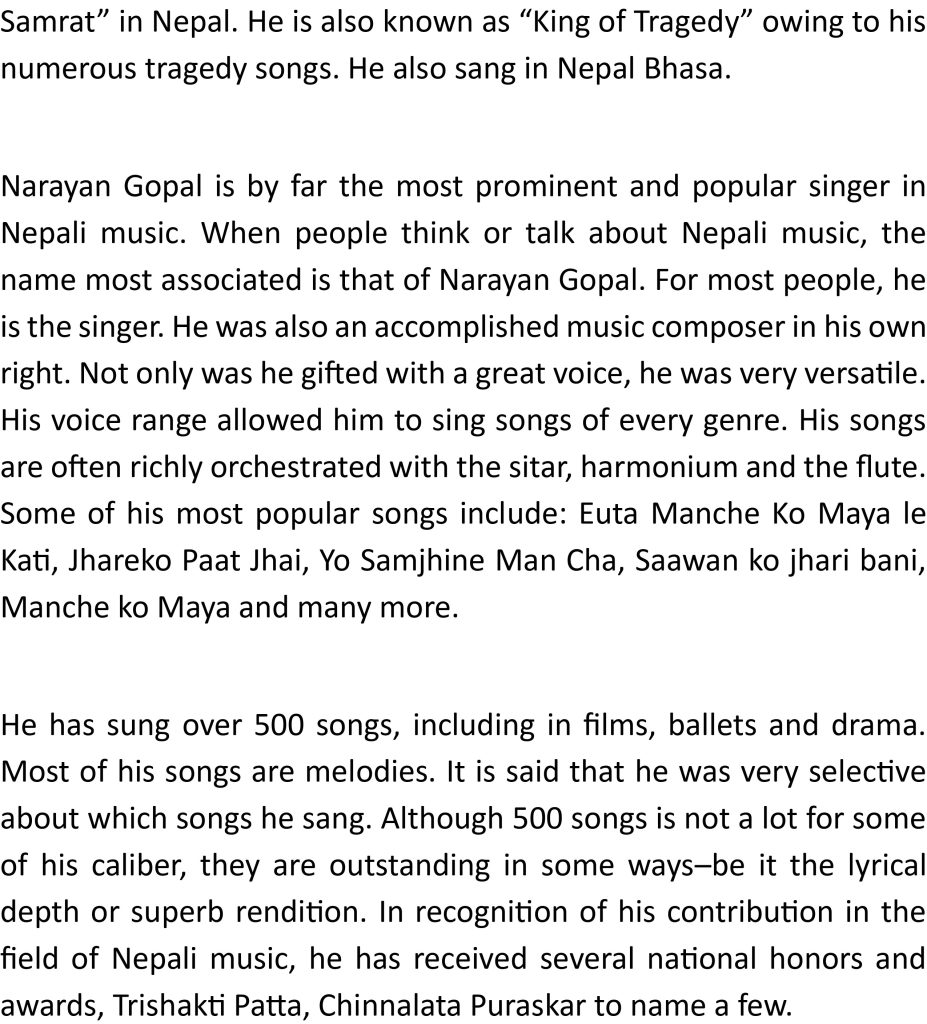
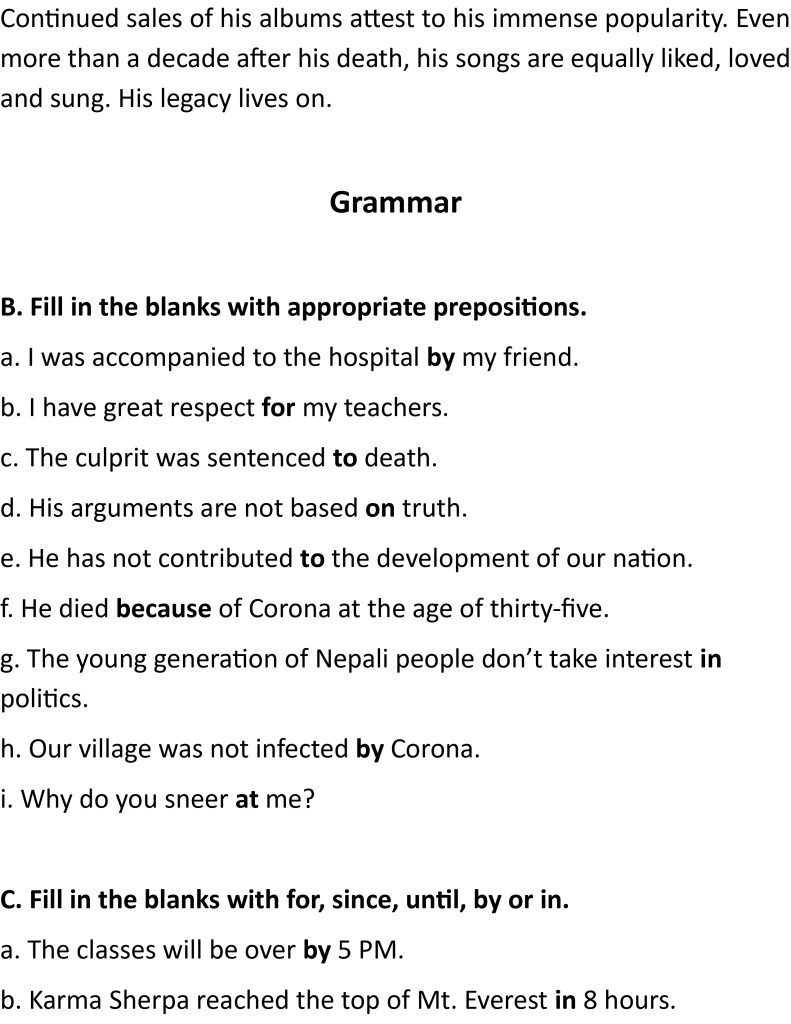

Summary: Music and Creation Exercise
The Music and Creation Exercise revolves around the life of the legendary composer Ludwig van Beethoven. It highlights how Beethoven, despite becoming completely deaf in his later years, continued composing masterpieces that revolutionized classical music. The story draws attention to the psychological toll of his deafness, the isolation he felt, and his struggle with suicidal thoughts. However, his resilience, dedication to music, and ethical values helped him overcome his despair and continue creating timeless compositions. The chapter explores the philosophical debate on whether genius is born of divine inspiration or built through rigorous effort, leaning toward the latter in Beethoven’s case.
Key Takeaways
- Ludwig van Beethoven was one of the greatest musicians despite losing his hearing in his late twenties.
- His deafness became a catalyst for deeper musical creativity and inner exploration.
- The chapter compares Beethoven to other artists like Milton and Van Gogh who also worked through disabilities.
- Beethoven struggled with suicidal thoughts but overcame them through his ethical beliefs and passion for music and creation.
- The chapter suggests that Beethoven’s greatness came not from divine inspiration, but from relentless hard work and emotional strength.
- Music genres, instruments, and terminology are also discussed in the vocabulary and grammar sections.
- The lesson promotes self-belief, perseverance, and the power of creativity to overcome life’s challenges.
FAQ:
What is the main theme of the chapter Music and Creation in Class 12 English?
The main theme is the triumph of the human spirit and creativity over adversity, as seen in Beethoven’s ability to compose music despite his deafness.
How did Beethoven’s deafness influence his music?
Beethoven’s deafness ironically enhanced his creativity by allowing him to focus inwardly and compose music from his imagination and emotions.
What psychological effects did Beethoven suffer due to his deafness?
He experienced isolation, low self-esteem, fear, emotional distress, and even contemplated suicide before embracing his condition.
What message does the story of Beethoven convey to Class 12 English students?
It conveys the message of resilience, determination, and the power of art and ethics to overcome personal limitations and despair.
Was Beethoven’s musical success due to divine inspiration or hard work?
The chapter emphasizes that his success came from rigorous practice, lifelong discipline, and an unbreakable passion for music.
How is Beethoven compared to other famous personalities in the chapter?
He is compared to Milton, Van Gogh, and Toulouse-Lautrec, who also created remarkable art despite suffering from disabilities.
What genres of music are discussed in the vocabulary section of the Class 12 English chapter?
Genres like rock, pop, jazz, blues, classical, reggae, country, hip hop, and gospel are discussed.
What did Beethoven believe about his fate and deafness?
He believed that no one could save him from his fate, and he had to accept his condition to move forward in life.
How does the chapter Music and Creation enhance students’ understanding of music?
It introduces different musical instruments, genres, and vocabulary, while also showing how music can be an emotional and spiritual refuge.
What can Class 12 English students learn from Beethoven’s life?
Students learn that true greatness often comes from enduring hardship, and that inner strength and perseverance are key to success.
Leave a Reply